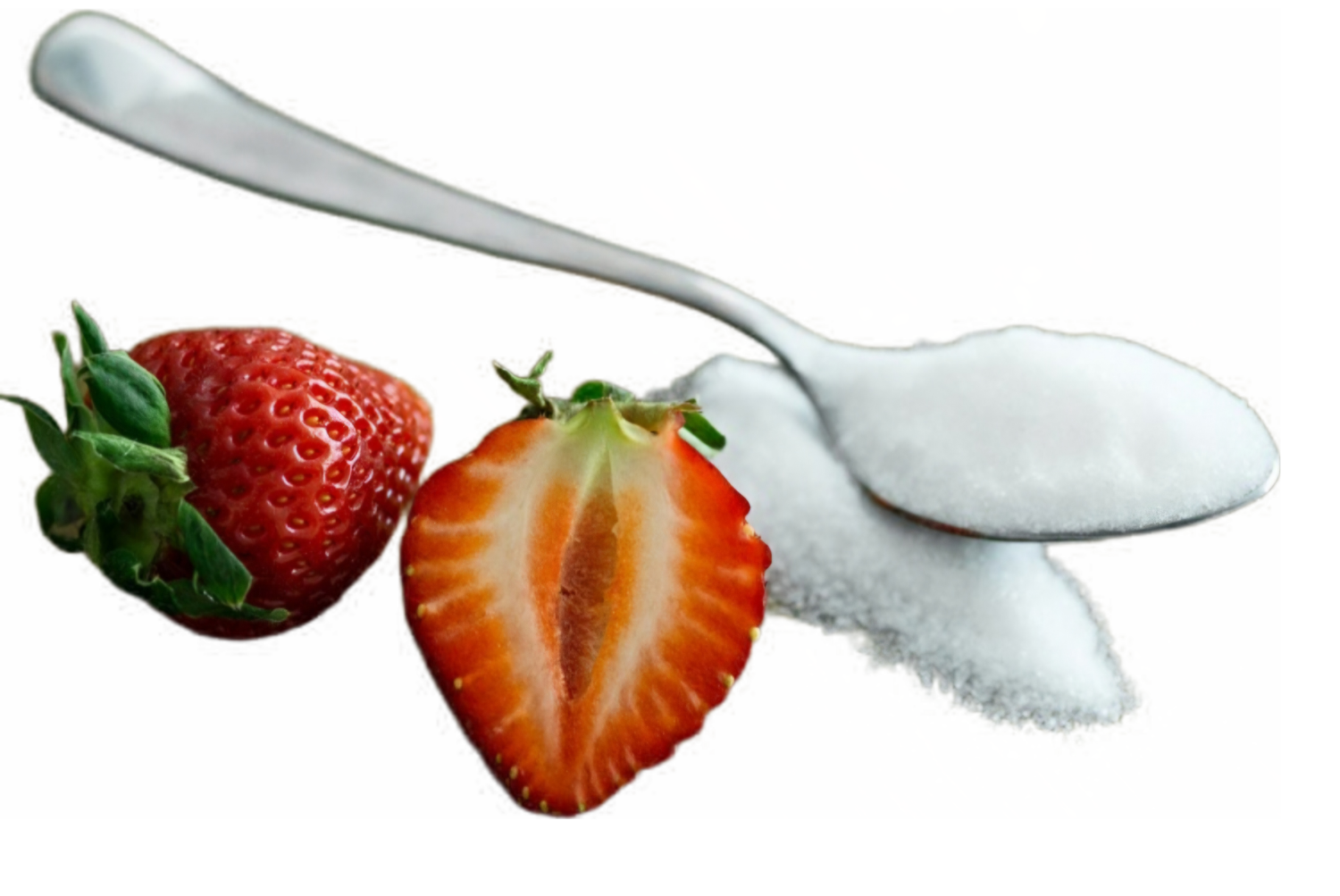
Allulose – The Rising Star That Brings Hope to Natural Sweeteners
Allulose StorePage audition
Source: HSF Biotech , 2023.
Allulose (D-allulose) is a rare monosaccharide and a stereoisomer of fructose that occurs naturally in trace amounts in the environment.
The taste of allulose is similar to sucrose, with a soft and subtle sweetness that does not change with temperature changes.
It contains about 70% of the sweetness of sucrose and only 10% of the calories, making it an ideal substitute for sucrose.
The structure of allulose is stable and exhibits strong chemical inertness, which allows it to adapt to acidic or alkaline environments.
During glycosylation reactions, allulose produces a large amount of antioxidant components, which can reduce oxidative losses and improve product quality during processing and storage.
Allulose has a wide range of applications, especially in healthcare and the food industry.
Health supplements
Allulose can increase plasma insulin levels, which may help reduce blood sugar and lipids, prevent obesity, and has antioxidant and neuroprotective effects.
Drinks
Allulose offers excellent processing stability and high solubility, making it ideal for reducing sugar content while maintaining the overall taste and quality of beverages.
Bakery products
Allulose is effective at high temperatures and provides good caramelization and water retention properties. This provides desirable color, moisture, and stable hardness to baked goods.

Confectionery products
Allulose has a low crystallization rate, making it useful for controlling sugar content, reducing calorie content, and maintaining the texture, elasticity, viscosity, and consistency of full-sugar confectionery products.
Biomaterial
Plant-based materials made from allulose are environmentally friendly, waterproof, and transparent, making them useful in the field of liquid crystal displays.
Pharmaceutical products
As a sugar-based anthelmintic, allulose inhibits the growth of parasites.
Overall, allulose has wide applications in various industries, especially those that require natural sweeteners with lower calories and strong health benefits.
Production
There are three main theoretical production methods for allulose: plant extraction, chemical synthesis, and biological conversion.
Plant extraction faces the problem of low alloketose content in plants, while chemical synthesis is hampered by high cost, procedural difficulties, complex purification and low yield. Therefore, industrial production mainly adopts the biological conversion method.
In the biological conversion method, refined starch serves as the starting raw material, which undergoes biocatalysis and refinement to obtain fructose, which serves as the substrate (or directly uses fructose, glucose, or fruit syrup as the raw material).
Allulose is refined using fructose isomerases.
Overall, the biological conversion method of production is a refined process that utilizes fructose produced from refined starch obtained by biocatalysis and refining.
Consumption
Based on the positive recognition of allulose's safety, the United States Food and Drug Administration approved allulose as a GRAS substance for legal sale in the country back in 2011 and authorized its use in the food processing industry.
However, at that time, due to factors such as poor awareness among people about sugar reduction, allulose was not highly accepted by consumers.
In recent years, with the strengthening of the global sugar reduction trend and the awakening of consumers' health awareness, and the implementation of "sugar tax" policies in various countries, allulose, as a natural low-calorie sweetener, is increasingly used to sweeten foods, beverages and medicinal products, becoming the most promising sugar substitute to replace sucrose.
Especially in 2019, when the US Food and Drug Administration announced the removal of allulose from “total sugar” and “added sugar” labels, allulose showed even stronger market demand and greater market potential.
Although most consumers are still unfamiliar with this new type of sweetener, in the future, as companies continue to strengthen their publicity, the awareness and acceptance of allulose is expected to increase significantly.
A company conducted a survey to investigate consumer opinions on allulose. The company randomly selected over a thousand patients who had limited knowledge about the properties of allulose.
Only 7% of respondents indicated that they use it.
However, after the company introduced them to allulose's sweet taste, calorie content, and mouthfeel, 95% of respondents accepted it, and about half of respondents considered allulose to be an ideal substitute for sugar.
They would choose allulose as their preferred sweetened beverage when purchasing.

